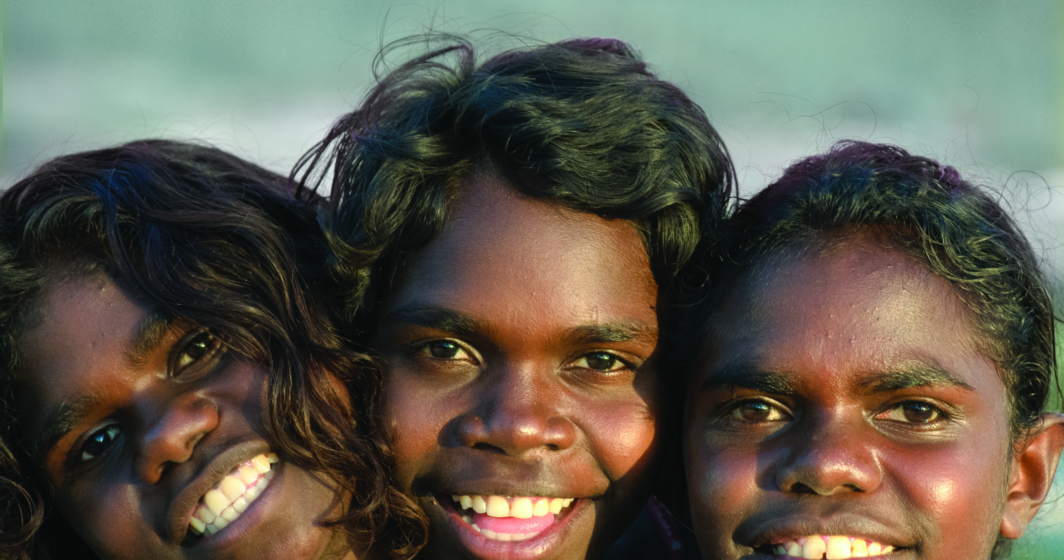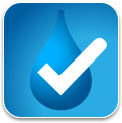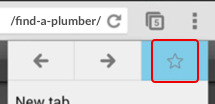There are plenty of good intentions about working alongside First Nations people to reduce the gap in access to sanitation, health, and employment. There are some great programs and great success stories. Ultimately, though, much more must be done.
When Ethan Corpus (pictured top right) and his mates finished school, he didn’t get the choice of a gap year or taking time to think about his future.
“We had the oldies on our case about getting a job,” Ethan relays with his infectious laugh. Luckily for Ethan, he had a mate who, through Nirrumbuk Aboriginal Corporation (NAC), had heard about a program offering plumbing apprenticeships in Melbourne.
NAC, established in Broome in 1993, is a for-purpose organisation driven by Aboriginal membership to offer career advice and support, and apprenticeships with their supported businesses in electrical services, building and plumbing, and through partners.

Ethan says it was through a partnership between Dowsett (now Cooke & Dowsett), NAC and the Victorian Plumbers Union that had Ethan and his mate on their first flight from Broome, leaving all their friends and family, to travel to Melbourne and take up apprenticeships.
That was the mid-2000s. At that time, Melbourne was in full flight, building accommodation, sports centres, and services for the upcoming Commonwealth Games.
“Dowsett Plumbing were involved with the early stages of this program and got us into the Commonwealth Games Village project. We then worked on other projects - Spencer Street Station, Rialto Tower - the whole commercial aspect was mind blowing.”
“We were straight out of school. We had done our work experience but that was it. Going to Melbourne and seeing how the real world operates, and the construction industry was phenomenal. It was such a good experience and something I will always be so grateful for.”
It was also a shock. “Victoria took us by surprise. It was cold and I was really homesick. I did three years of my apprenticeship, one year short of qualifying.”
Ethan returned to WA and picked up his apprenticeship with a local plumber in the Kimberley. He then returned to Broome and one day, while having breakfast with his partner and two young babies, Joe from Nirrumbuk (NAC) approached him to work for NUDJ Plumbing.
NUDJ, formed in 2009 though an amalgamation of NAC, Cooke & Dowsett, the Victorian Plumbers Union and the Jarlmadangah Burru Aboriginal Corporation, provides plumbing services alongside delivering training and employment opportunities for Indigenous people. NUDJ aims to differentiate itself from being considered as “just another plumber” by having a clear vision to positively impact on Indigenous Australians through training, mentoring and personal development.
“I was qualified by then and part of me wanted to work with younger guys to give them the opportunity I had,” Ethan says of his decision to start with NUDJ in 2012.
By 2014, several people had pinned him as the next manager. Among them was Scott Dowsett, the former Master Plumbers’ President who has been instrumental in fostering partnerships in the Indigenous communities including NUDJ and the Indigenous Plumbing and Sanitation Foundation (IPSF).
“It was daunting and nervous at times, Ethan said. I had never even thrown off an email until then.
“This really was a huge credit to NUDJ, Scotty Dowsett and the union,” Ethan says humbly. “They really built up that confidence within myself.
Ethan says he could not have imagined starting his own business back in 1990 or even in 2012. Now, 11 years on, with strong mentoring from Scott Dowsett and those at Cooke & Dowsett and NUDJ, he is setting sail to build his own business.
The shareholders of NUDJ late last month announced that after 14 years, Ethan would take over the local operations of NUDJ and continue trading as Garlooroo. In the announcement Scott wrote: “The shareholders’ vision of providing opportunities for young Indigenous people to become qualified plumbing practitioners, empowered to mentor others in their communities by creating business opportunities and then handing over operations, has come true.”
Ethan will now rebrand and remarket NUDJ to trade as GARLOOROO.
So, what advice would he give other young Indigenous people?
“You must trust in yourself, seek out other people to support you and take the opportunity.
“I still have lots of phone calls between myself and Scott and he just keeps encouraging me to keep on going. Now I get the chance to support others.”
And what else can be done to ensure more First Nations students can get access to the skills and work?
“It’s important for those young people in community to see local Indigenous men doing their trade.
“It is not easy for an Indigenous kid to go out and ask a non-Indigenous plumbing company for a job; there is a shame factor in that,” Ethan explains. “Many Indigenous kids know us, and they feel comfortable, Indigenous person to another Indigenous person.”
There are so many barriers facing Indigenous kids living in community. Language and culture barriers are just some. And yet there is a need to work hard to ensure there are Indigenous plumbers in communities, not just to encourage the next generation of plumbers but to walk through those barriers to provide better basic sanitation and access to clean running water.
“It is important for me to help to improve the lives of people and sanitation is a big part of that. Assisting people to live in healthier conditions, providing good sanitation and reducing sickness; it is a big part of the reward you get if you do a good job.”
Scott Dowsett agrees. Scott has used his leadership in the plumbing industry to work alongside Indigenous organisations and individuals to develop programs, support businesses like NUDJ and develop the Indigenous Plumbing and Sanitation Foundation. Why?
“There is a multitude of Federal and State Government projects and initiatives that aim to improve the lives of Aboriginal people,” Scott explains. “There are websites and downloadable reports galore. Strategies, roadmaps, employment targets, procurement policies and reconciliation action plans with artistic front covers. The good intentions are genuine. There’s been success in some areas, but not enough.”
The facts are stark. Preventable and unnecessary water-borne diseases, those, like Trachoma, eradicated from some third-world countries, are prevalent in some remote Aboriginal communities due to a lack of access to clean water and sanitation.
“Too often, the sheer size of Australia and the vast distances that separate Aboriginal communities from each other (and from regional towns) mean they lack the immediate plumbing services urban Australians take for granted,” Scott says.
“Essential plumbing repairs may be left unattended, not because of deliberate neglect but because of the time it takes to get a plumber out to do the work. This applies whether the problem is a simple one, such as a dripping tap, or an emergency like a broken water pipe or blocked toilet.
“Inevitably, there are public health consequences. Water-borne diseases and poor hygiene result in health issues that affect educational outcomes, life choices and the quality of life from childhood to old age.
One of the United Nations’ Sustainable Development Goals is for access to water and sanitation to be available to all - but when it comes to the health and wellbeing of remote Indigenous communities, that ambition is falling short.
That’s where the Indigenous Plumbing and Sanitation Foundation (IPSF) comes in.
By providing apprenticeship opportunities to Indigenous people from rural and remote communities, the IPSF empowers people by teaching them skills which can provide a lifelong career and earning capacity. These skills can be translated back into their local communities, with qualified plumbers able to serve as mentors and affect generational change through education.
Scott, a Board member of the IPSF, says the Foundation lives the creed that “prevention is better than the cure.”
“We know that plumbing is at the forefront of the protection of public health, and we know that quality plumbing and sanitation has always been and remains one of the key drivers of economic and social advancement,” he says.
“IPSF works with Aboriginal and Torres Strait Islander communities across Australia who are living with dangerously poor sanitation. We help directly by providing clean, reliable, and sustainable drinking water and plumbing services.
We support projects that provide apprenticeship opportunities for Indigenous people, and we work to empower individuals through community-led training and plumbing projects.”
The IPSF was established in 2014, to build on the success of and further enhance the Indigenous Apprenticeship Program, run by the Plumbing and Pipe Trades Employees Union (PPTEU) in partnership with the Victorian, Western Australian, and Northern Territory Indigenous communities.
Since 2009, more than 80 young Aboriginal and Torres Strait Islander men and women have completed apprenticeships through the program. Cooke & Dowsett have seen 45 more and helped create more than 150 jobs for Indigenous people.
Many graduates have returned to their communities as fully qualified plumbers to improve access to safe water and sanitation and ultimately enrich their regions.
Share this Article






